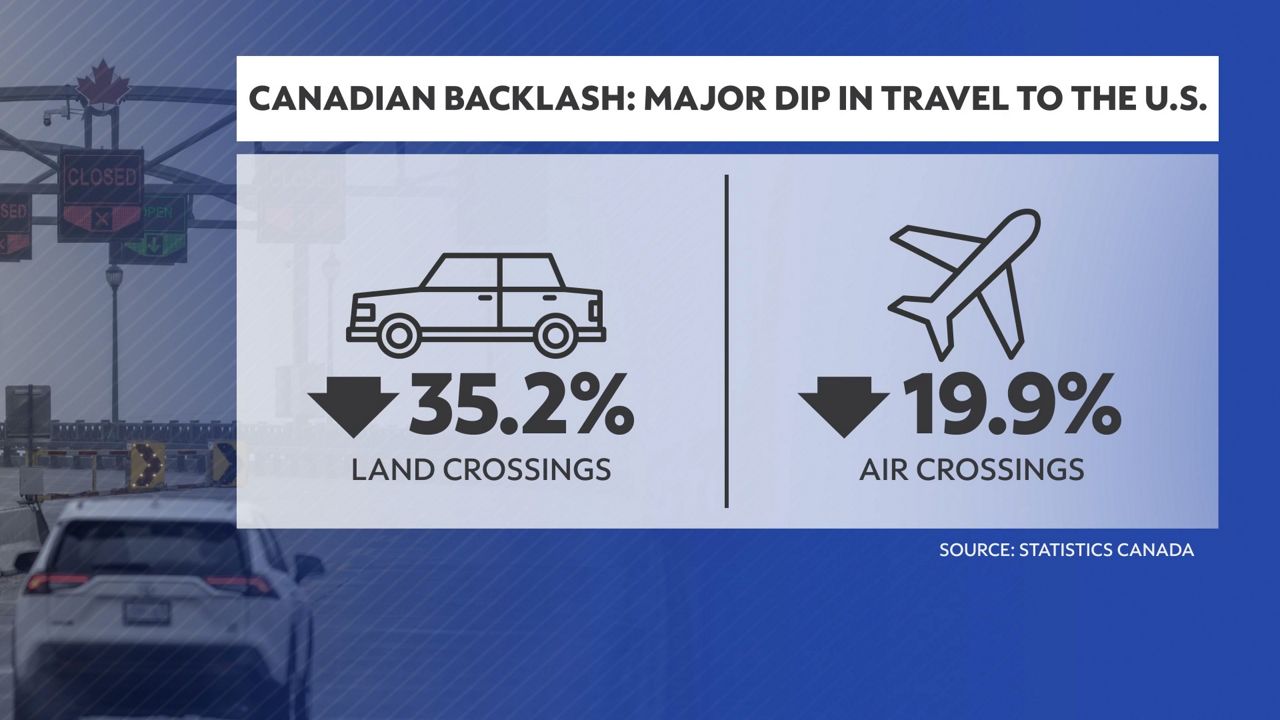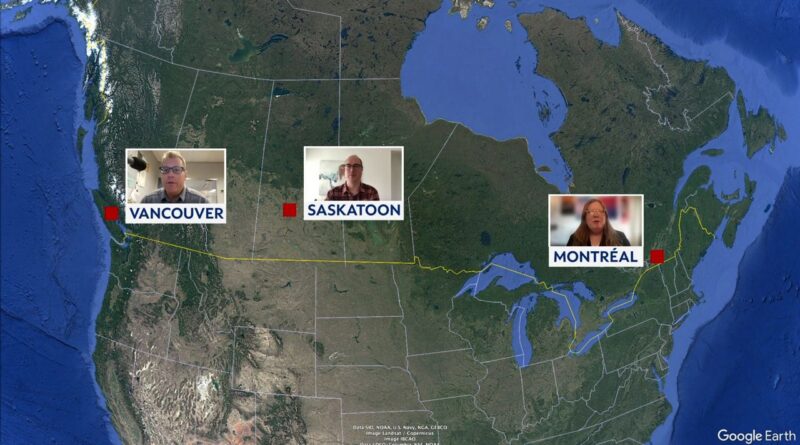Canadian backlash causing a dip in tourism to the U.S.
Heath Graham, of Saskatoon, Canada, had exciting plans for a 10-day road trip with friends through the heart of the U.S. this summer. The adventure was supposed to begin in Winnipeg and end nearly 1,500 miles away in Austin, Texas.
“A barbeque-themed trip,” he said. “We were going to check out some sites along the way and eat some great food.”
But Graham and his friends decided to cancel the trip amid the rising tensions between the U.S and Canada. Graham cited President Donald Trump’s repeated comments about making Canada the “51st state” as the deal-breaker.
“We don’t find this funny,” he said. “As much as some people might think it’s a joke, we take our sovereignty very seriously. And we’re showing that with how we’re spending our money.”
Graham and his friends are not alone. After Spectrum News posted a request in the Reddit “r/BuyCanadian” online community for information about Canadians canceling their U.S. travel plans, hundreds of people responded.
One user wrote that her best friend lives in Montana but that she will “never go back ever again.” Another opted out of a family reunion in New York because “the idea of U.S. travel is absurd” to the whole family.
Jon De Roo, a resident of Vancouver Island in western Canada, responded that he had planned to join his fantasy football league on a group trip to Phoenix to watch golf and celebrate a friend’s birthday. But De Roo said he canceled the trip because of the president’s rhetoric.
“I told my buddies I can’t travel to a country that’s threatening to annex us in good conscience,” he said.
These Canadians are part of a growing movement to cancel trips to the U.S. and boycott U.S. products. The trend is showing up in the latest preliminary tourism data from Statistics Canada:
• In April, the number of Canadians returning from the U.S. by land plummeted 35.2%, from 1.92 million travelers in April 2024 to 1.24 million last month.
• The number of Canadians returning by air from the U.S. dropped by 19.9% last month, compared to April of last year.

Trump is downplaying the trend, referring to the U.S. as the “tourism capital of the world.”
“There’s a little nationalism there, I guess — perhaps,” he said. “It’s not a big deal.”
The trend for visitors from the rest of the world is not as clear. Preliminary numbers from the National Travel and Tourism Office show that the number of foreign visitors from countries other than Canada and Mexico dropped nearly 11.6% in March but then increased 8% in April.
“These overseas travelers are absolutely critical to the American economy,” said Geoff Freeman, president and CEO of the U.S. Travel Association.
Freeman said international travelers spend roughly $180 billion in the U.S. every year, a fifth of the entire travel industry. He said that even a 1% dip in international visitors would cost the economy roughly $2 billion.
“It’s not too late,” he said. “We can regain these travelers. The most important thing we can do, though, is send a message that we want their business.”
The dip in Canadian tourists, which equals roughly a quarter of the overseas visitors to the U.S., can have a pronounced impact on border states. John Percy, president of Destination Niagara USA said many local businesses near Niagara Falls, get roughly 10% of their business from Canadians.
“Canadians are our friends and neighbors to the north,” he said. “They’re like a neighborhood separated by a bridge.”
Percy said a decline in overseas visitors would have a major impact on tax revenue since these international visitors tend to be high-value spenders.
“We love our domestic visitors,” Percy said. “They make up the biggest portion of our business here. But when you have an international visitor, they have a tendency to stay longer and spend more in many destinations.”
Some states have launched ad campaigns aimed at easing the concerns of Canadian tourists. In one ad, California Gov. Gavin Newsom appears on camera, saying, “The Golden State and Canada have always shared so much in common. … Sure, you know who is trying to stir things up in D.C. But don’t let that ruin your beach plans.”
Despite these appeals, many of the Canadians who spoke with Spectrum News said they were unlikely to visit the U.S. anytime soon.
“It’s forever changed our relationship,” De Roo said.
Percy expressed hope that this would only be temporary but conceded that some Canadians may be gone for good.
“When you see the numbers coming out that Canadians are switching to Mexico or Europe,” he said, “that’s lost business that we may not get back.”

